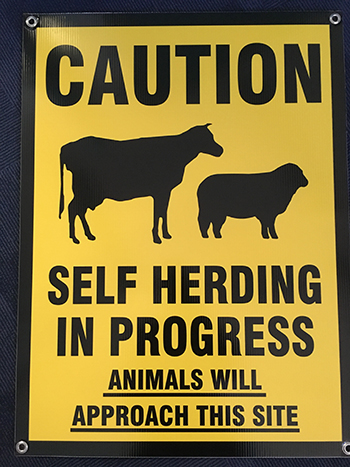Central Australian Self Herding (CASH) Project in action
The Department of Industry, Tourism and Trade is facilitating the Meat and Livestock Australia funded Central Australian Self Herding Producer Demonstration Site (PDS). This is a 5 year project, currently moving into the third year.
Self Herding is the brain child of Bruce Maynard and Dr Dean Revell. It is a multifaceted system for influencing cattle behaviour and the way they interact with humans. The overall aim is to enhance stock management, with minimal stress and reduced effort. That can include encouraging cattle to graze new areas, helping them quickly become familiar with new water points and reducing stress during yarding and trucking.
Bruce Maynard emphasises that the approaches of self herding can be tailored to suit the individual needs of station managers and that starting with their concerns or interests is when the application is most successful.
Several Central Australian pastoralists have already taken part in the project and one producer has fully integrated the Self Herding principles into day-to-day operation.
To read a detailed case study about Ross and Joanne Stane’s journey with the Central Australian Self Herding (CASH) project and to see the impact Self Herding is making on Lyndavale Station follow this link: https://futurebeef.com.au

If you want to get involved with the CASH project contact with Lakota Taber on 8951 8144 or email Lakota.taber@nt.gov.au
